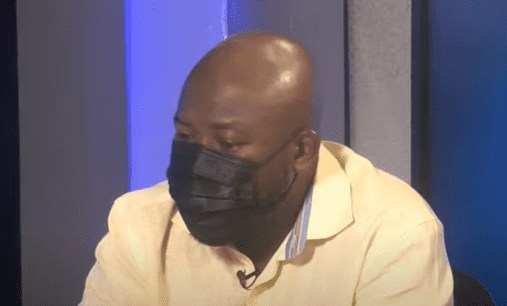The Chief Executive Officer of the Chamber of Bulk Oil Distributors (CBOD) says policymakers who are to ensure citizens and players in the energy sector are shielded from hikes in prices of petroleum products have not been committed to carrying out their mandates.
Senyo Hosi, speaking on JoyNews' PM Express Business Edition on Thursday stated that due to Ghana's inability to set petroleum prices in the world market, policymakers should be concerned with mitigating the effects of spikes in prices when they do happen.
According to him, the country is not a price determiner because it produces and consumes relatively small quantities of petroleum products.
"In times like this, when prices take on more of a contango, you get a bit more concerned about the impact on the citizen and consumer. They are the reason why we are in business. It is difficult but there are very few things that can be done.
"Unfortunately, I don't think our policymakers have been really committed to really deal with the issues of the impact of petroleum pricing. I have always said that we can do very little about petroleum pricing because Ghana is always going to be a taker and not a price maker. We don't produce much, consume much, there is almost very little you can do on that side.
"But what you always do from the policymakers' perspective is to drive interventions that can mitigate the impact of petroleum price increases, he explained.
For him, policymakers often decide to take the easy way out, an act he is hopeful would be a thing of the past in the near future.
His comments come at a time when the price of diesel is expected to go up marginally from Friday, October 1.
Prices of some petroleum products including Liquefied Petroleum Gas will also go up, however, price of petrol is expected to remain the same according to projections by the Institute for Energy Security.
Amidst such concerns, some Oil Marketing Companies (OMCs) including Shell has taken the lead and is now selling a litre of petrol and diesel at ¢6.52.
Generally, fuel prices have been increased more than eight times in the first half of 2021 alone.
Discussing solutions to these grievances with host, George Wiafe, Mr Hosi indicated that it is high time the country invested sufficiently in the railway system.
After recounting the economic benefits of the railway system he and some state officials have experienced in developed countries, Mr Senyo Hosi noted that this is the surest way to cushion citizens from the impact of a hike in fuel prices.
"We need to give people options to manage the impact of petroleum prices. What investment have we done to significantly transform our mass transportation sector? I don't think we have done responsible work on that side.
"I don't know how much rocket science there should be for us to realize that the investments we have spent on subsidies, investments that we are making out of income generated out of fuel could possibly go into improving our rail system. There should be no reason why we shouldn't have a rail running from Dodowa all the way to Accra.
"When petroleum prices go up, the impact should be very minimal," he concluded.
Latest Stories
-
DAMC, Free Food Company, to distribute 10,000 packs of food to street kids
29 minutes -
Kwame Boafo Akuffo: Court ruling on re-collation flawed
49 minutes -
Samuel Yaw Adusei: The strategist behind NDC’s electoral security in Ashanti region
51 minutes -
I’m confident posterity will judge my performance well – Akufo-Addo
1 hour -
Syria’s minorities seek security as country charts new future
2 hours -
Prof. Nana Aba Appiah Amfo re-appointed as Vice-Chancellor of the University of Ghana
2 hours -
German police probe market attack security and warnings
2 hours -
Grief and anger in Magdeburg after Christmas market attack
2 hours -
Baltasar Coin becomes first Ghanaian meme coin to hit DEX Screener at $100K market cap
3 hours -
EC blames re-collation of disputed results on widespread lawlessness by party supporters
3 hours -
Top 20 Ghanaian songs released in 2024
3 hours -
Beating Messi’s Inter Miami to MLS Cup feels amazing – Joseph Paintsil
4 hours -
NDC administration will reverse all ‘last-minute’ gov’t employee promotions – Asiedu Nketiah
4 hours -
Kudus sights ‘authority and kingship’ for elephant stool celebration
4 hours -
We’ll embrace cutting-edge technologies to address emerging healthcare needs – Prof. Antwi-Kusi
4 hours

